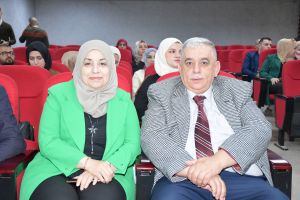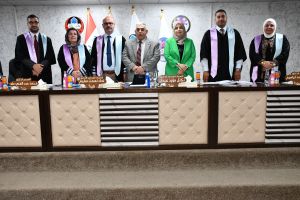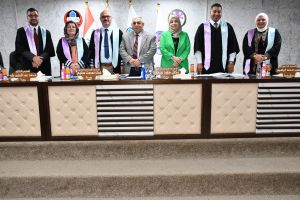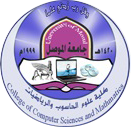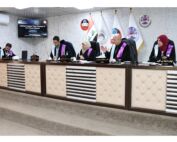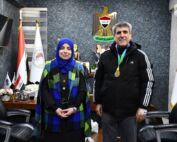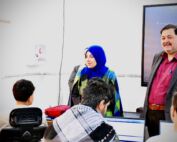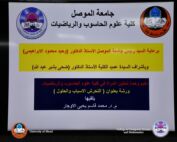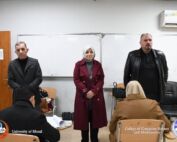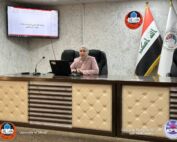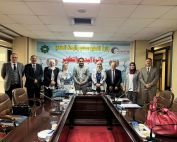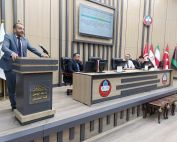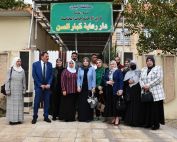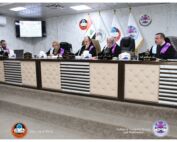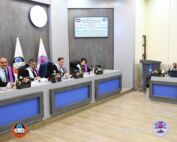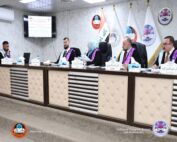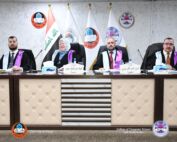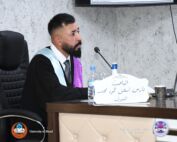19 November، 2023
Ahmed Riyadh Abdullah’s master’s thesis
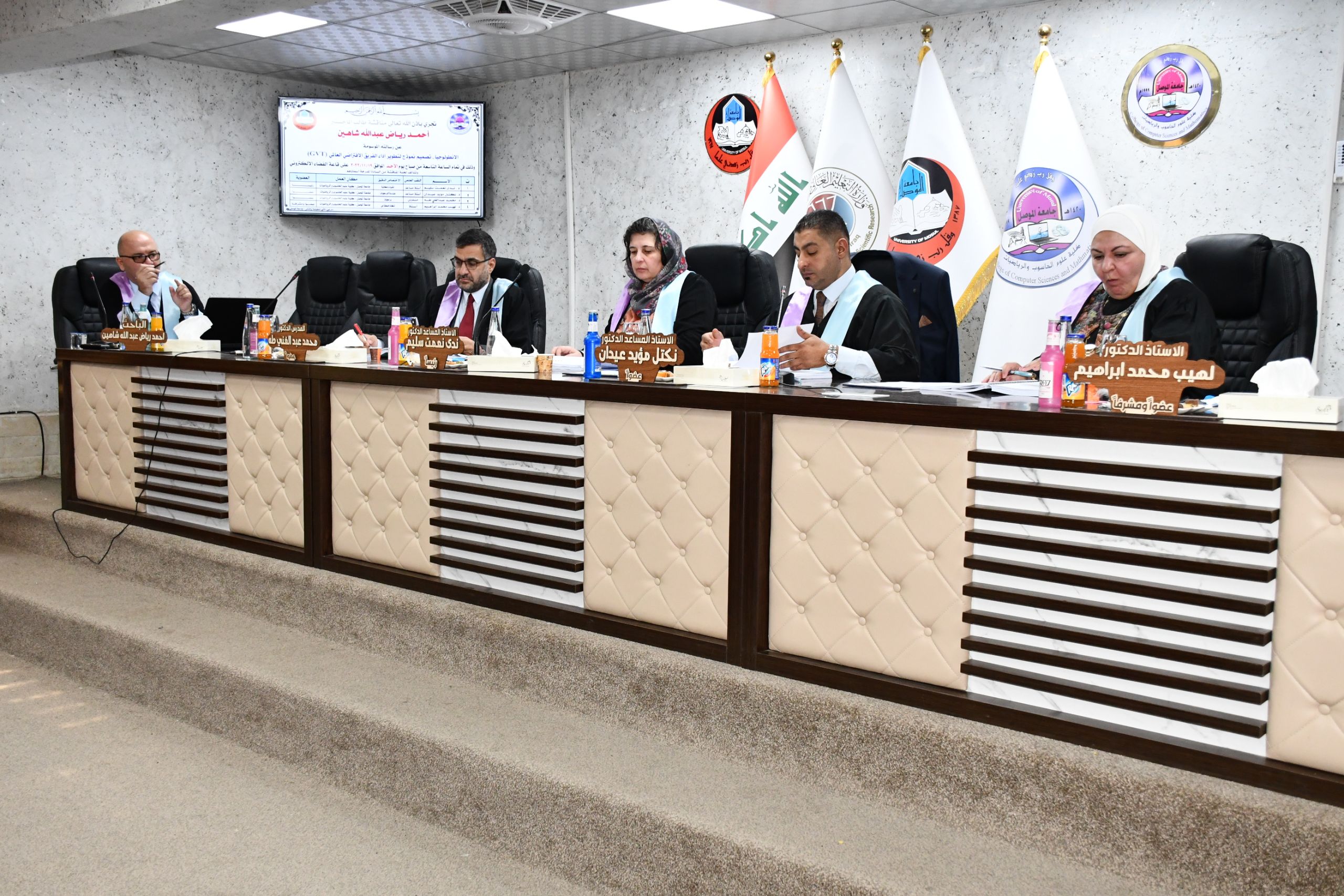
Discussion of a master’s thesis in the College of Computer Science and Mathematics – Software Department
Entitled (Ontology- Design a model to develop the Global Virtual Team (GVT) Performance)
In continuation of the movement of scientific research and in the presence and follow-up of the respected Mrs. Dean of the College of Computer Science and Mathematics, Prof. Dr. Duha Bashir Abdullah, the esteemed
On Sunday 19/11/2023, the College of Computer Science and Mathematics at the University of Mosul discussed the master’s thesis for the student (Ahmed Riyadh Abdullah Shaheen), under the supervision of Prof. Dr. Laheeb Mohammed Ibrahim
The development of Information and Communication Technology (ICT) which the world has witnessed in the recent period, and its ability to connect large geographical areas, helped in the emergence of a new organizational structure called Global Virtual Teams (GVTs). These are geographically dispersed teams that use ICT as a means of communicating between their members and exchanging data and information from anywhere in the world without the need to be in offices or work face-to-face, which reduces the costs of travel, accommodation, offices, and travel time, in addition to providing global expertise at low wages. The advantages possessed by these teams prompted global software companies to adopt the Global Software Development (GSD) approach using GVTs as an alternative to the traditional approach in the development process, in addition to globalization in software development and the increasing global demand for it to be used in different areas of life, the desire to save and reduce cost and time, the pursuit of commercial competition, as well as increasing the quality of the developed product by employing efficient international expertise. Despite the benefits and advantages of the GSD approach using GVTs, it is affected by a group of factors that arise as a result of the geographical dispersion of team members and the use of ICT as a means of communication between them. These factors affect, positively or negatively, the performance of team members and therefore must be identified and considered to enhance the teams’ overall performance.
This thesis aims to identify the factors affecting the performance of the Global Virtual Team (GVT) in GSD and the concepts and objectives associated with the GSD process, which was identified through conducting a Systematic Literature Review (SLR) resulted in identifying (59) influencing factor, concept, and goal related to the GSD process using GVTs, as well as a set of (factors, concepts, and goals) included in it. Designing a proposed model for developing the performance of GVT in GSD which was called the GVT Performance Development Model in GSD (GVTPDModel), this model includes (78) entity represents the factors, concepts, and objectives that were identified through SLR. And validation of the model through conducting a questionnaire in which a group of software developers and experts in GSD participated using GVTs. The results of the questionnaire were analyzed using the Arab Processor In Social Statistics (APSS) program, and the results of the analysis were positive in favor of the proposed model, with an acceptance rate of (91%) of the study sample for the questions of the first axis of the questionnaire and (90.8%) of the study sample for the questions of the second axis of the questionnaire.
To facilitate access to and dissemination of this knowledge among GSD workers using GVTs, an ontology of the proposed model was built and was named GVT Performance Development Ontology in GSD (GVTPDOnto) by converting this model into a conceptual model using the Object-Role Modeling (ORM) language after collecting information about the concepts of the model and the relationships that link them and the constraints that define them. The ontology was built, populated, and implemented using Python, which consists of (78) classes, (152) object properties, (13) data properties, (9) annotation properties, (621) individuals, (262) class axioms, and (2668) individual axioms. Vocabularies from other ontologies such as Friend of a Friend (FOAF) were reused in the construction process, and the classes were also linked to global datasets on the web such as (DBpedia, Wikidata, and Wikipedia). And GVTPDOnto was evaluated to verify its validity, consistency, and efficiency through reasoning engines (Pellet / Hermit) and Simple Protocol And Rdf Query Language (SPARQL) queries, which were used to ask a set of competency questions, as well as a comprehensive evaluation using the tool OntOlogy Pitfall Scanner! (OOPS!). Finally, the ontology was documented and a unique, secure, and permanent Uniform Resource Locator (URL) was reserved for it, and with a license from ( CC BY 4.0). The ontology will be published on the web at the address (https://w3id.org/GVTPDOntology) so that software project managers, team leaders, programmers, academics, and others interested in the field of GSD using GVTs can benefit from it.
The scientific committee included the following members:
- Asst. prof Dr. Nada Nimat Saleem (University of Mosul) / chairman
- Asst. prof Dr. Nektel Muayyad Idan (University of Mosul) / Member
- Dr. Muhammad Abdel Ghani Taha (University of Mosul) / member
- Prof. Dr. Laheeb Mohammed Ibrahim (University of Mosul) / member and supervisor


